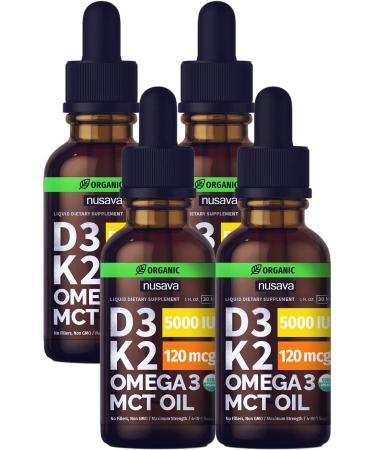Clinical Studies - A study demonstrated the efficacious effect of MenaQ7**on arterial stiffness. The participants of this double-blind study, 244 postmenopausal women, were treated with either placebo or MenaQ7**for a period of three years. The use of MenaQ7**significantly decreased arterial stiffness and improved arterial elasticity in the treatment group, whereas the placebo group saw an increase in arterial stiffness.* A la
ge-scale study on vitamin K intakes among 5,000 Dutch persons suggests that vitamin K2 may help maintain healthy blood vessels.* The study participants were divided into four groups based on their daily vitamin K intake from food sources, as assessed from a food frequency questionnaire. Compared to those in the low vitamin K2/menaquinone group, subjects with the highest consumption level of K2 had substantially superior heart health.* Similar associations were not seen for vitamin K1.
A study investigated the association of intake of phylloquinone and menaquinones with coronary calcification in a cross-sectional study among post-menopausal healthy women. This study shows that high intake of menaquinones (K2) is associated with reduced arterial calcification. Adequate intakes of menaquinones should therefore be important to prevent artery damage and support heart health.*
Data from the Prospect EPIC cohort (16,057 women enrolled between 1993 and 1997, aged 49-70 years and with no history of heart problems at baseline) showed that high intake of natural vitamin K2 (i.e, not synthetic K2, and not of vitamin K1) was associated with protection against negative heart events.
Studies in humans have confirmed the importance of vitamin D for heart function.* In a study consisting of 1,739 participants from the Framingham Offspring Study, those individuals with the highest levels of vitamin D had superior cardiac function in relation to those with low vitamin D levels.
Results from a double-blind randomized clinical trial showed that MenaQ7**(180 mcg daily for 3 years) supplementation improved some parameters of arterial stiffness in healthy post-menopausal women. The study concluded that MenaQ7**improved soft tissue elasticity and supports heart function.*5A cross-sectional study was conducted of 2722 individuals and demonstrated increased rates of blood pressure in individuals who tested for lower levels of 25-hydroxyvitamin D starting at levels <40 ng ⁄mL. This retrospective analysis suggested that supplementing to optimal vitamin D levels may help control blood pressure.*
A study included 158 patients aged 35–65 years with no evidence of overt manifestation of heart or kidney health, found that level of 25(OH)D3 was significantly lower in participants with high blood pressure compared to participants that had normal blood pressure. The study concluded that the influence of 25(OH)D3 on systolic blood pressure variation, mediated by its effect on endothelial dysfunction and subclinical organ damage, was modest but significant.
A randomized, double-blind, placebo-controlled trial was conducted to evaluate the effect of oral vitamin D supplementation on blood pressure in participants uncontrolled blood pressure and vitamin D3 deficiency. Results showed that weekly administration of 50,000 IU of oral vitamin D3 for 8 weeks did decrease overall blood pressure and improve the status of vitamin D in the body. Based on the results, they concluded vitamin D3 supplementation may be an adjunct supplement very helpful in controlling blood pressure.*
A study explored the relationship between phylloquinones (vitamin K1) and menaquinones (vitamin K2) intakes and the risk of heart problems in a prospective cohort with 36,629 participants. They concluded that high vitamin K2 intake was the best at reducing the risk of heart problems especially normalizing blood pressure.*
A 12-month clinical intervention among healthy postmenopausal women was conducted to examine the effect of dairy products enriched with calcium (Ca), vitamin D3 (D3), and vitamin k1 (K1) or vitamin k2 (K2) on parameters of bone metabolism. Compared to the control group (group without any dietary intervention), all the other groups (CaD3, CaD3K1 and CaD3K2) showed significant increases in total-body bone mineral density (BMD) and the 2 groups that received K1 or K2 also showed significant increases in lumbar spine BMD. The study concluded that vitamin K1 and Vitamin K2 are two vitamin Ks with favorable effect in bone metabolism and bone mass.*
To investigate the effective minimum daily menaquinone-7 dose for improving osteocalcin γ-carboxylation, an index of bone health, a Japanese research team conducted couple of double-blind, randomized controlled trials. Results from the first study found that daily doses of either 100 mcg or 200 mcg MK-7 were efficient in increasing osteocalcin γ-carboxylation compared to the 0 mcg group. From the second study, osteocalcin γ-carboxylation improved significantly in the 100 µg MK-7 group compared to the placebo group. From all these results, it was concluded that daily MK-7 intake of 100 mcg or more was efficient to improve osteocalcin γ-carboxylation and therefore bone health.*
Caution: This product contains vitamin K. Consult your physician if using blood-thinning medications such as Warfarin.blind RCT and on osteoblast-osteoclast co-cultures. Aging. 2017;9:256-285.





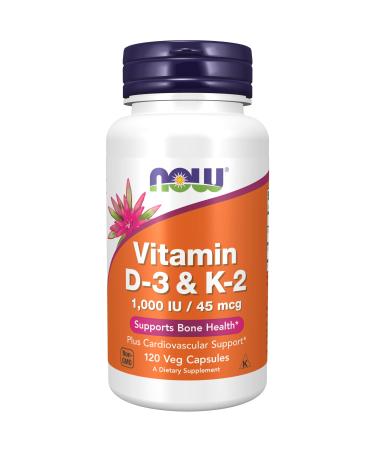
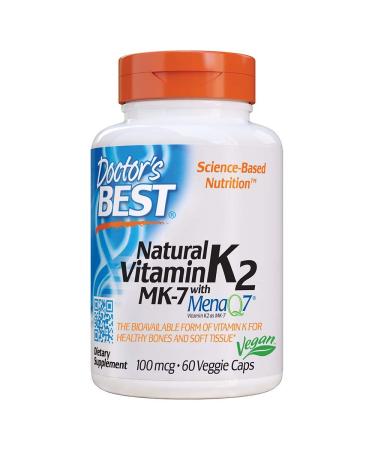
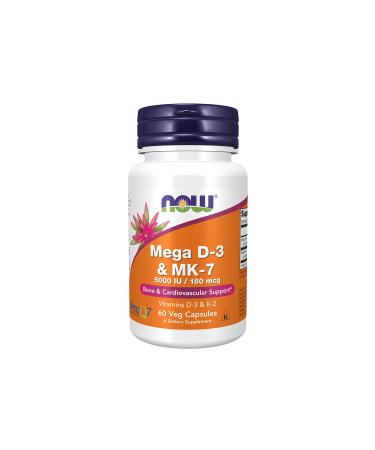
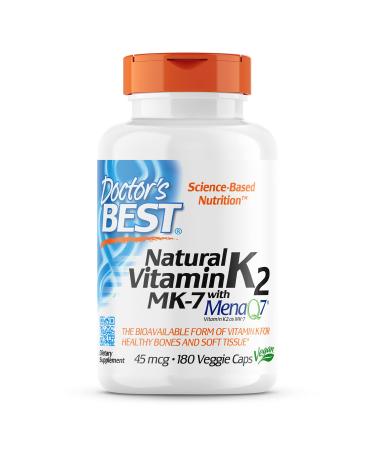





![Stewart Freeze Dried Dog Treats Made in USA [Single Ingredient Puppy and Dog Training Treats - Grain Free Natural Dog Treats] Resealable Tub to Preserve Freshness](https://www.gosupps.com/media/catalog/product/cache/25/small_image/375x450/9df78eab33525d08d6e5fb8d27136e95/6/1/61gwbbixarl._ac_sl1500_.jpg)



